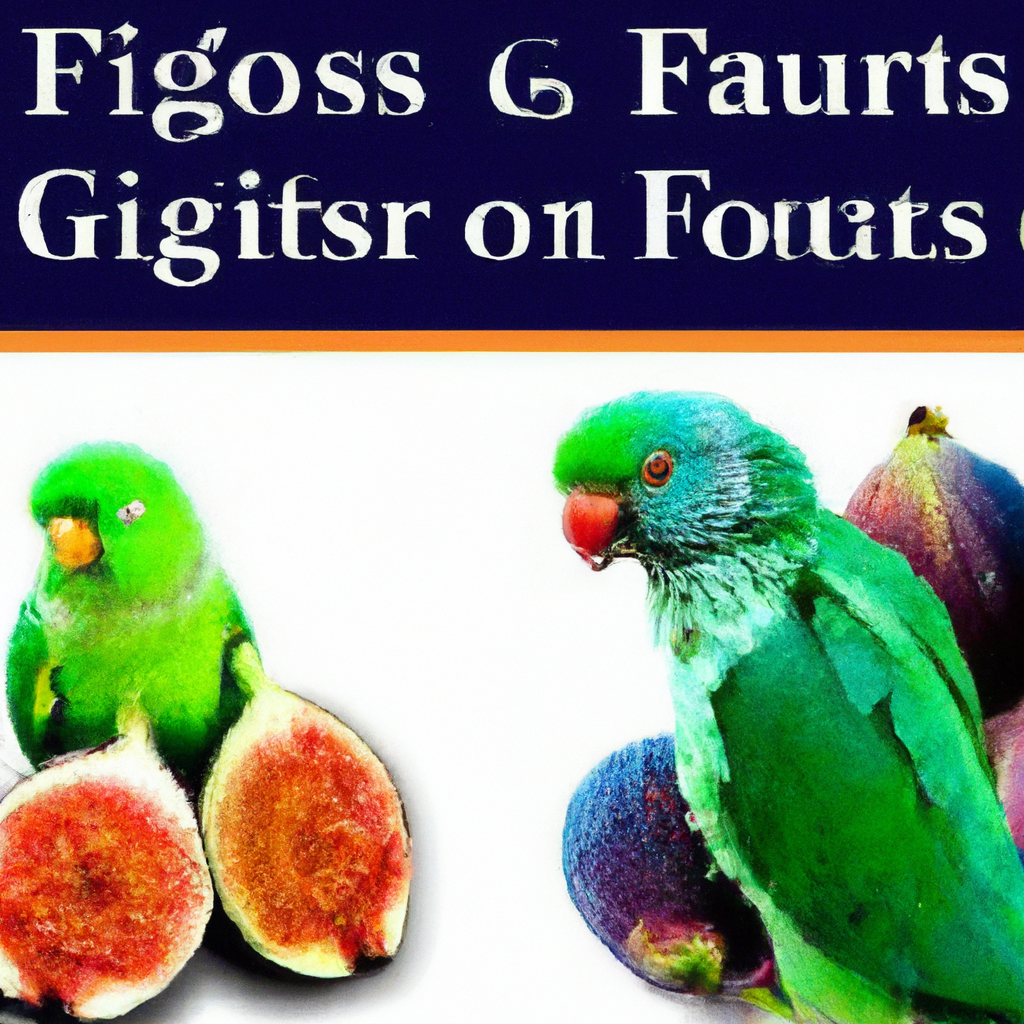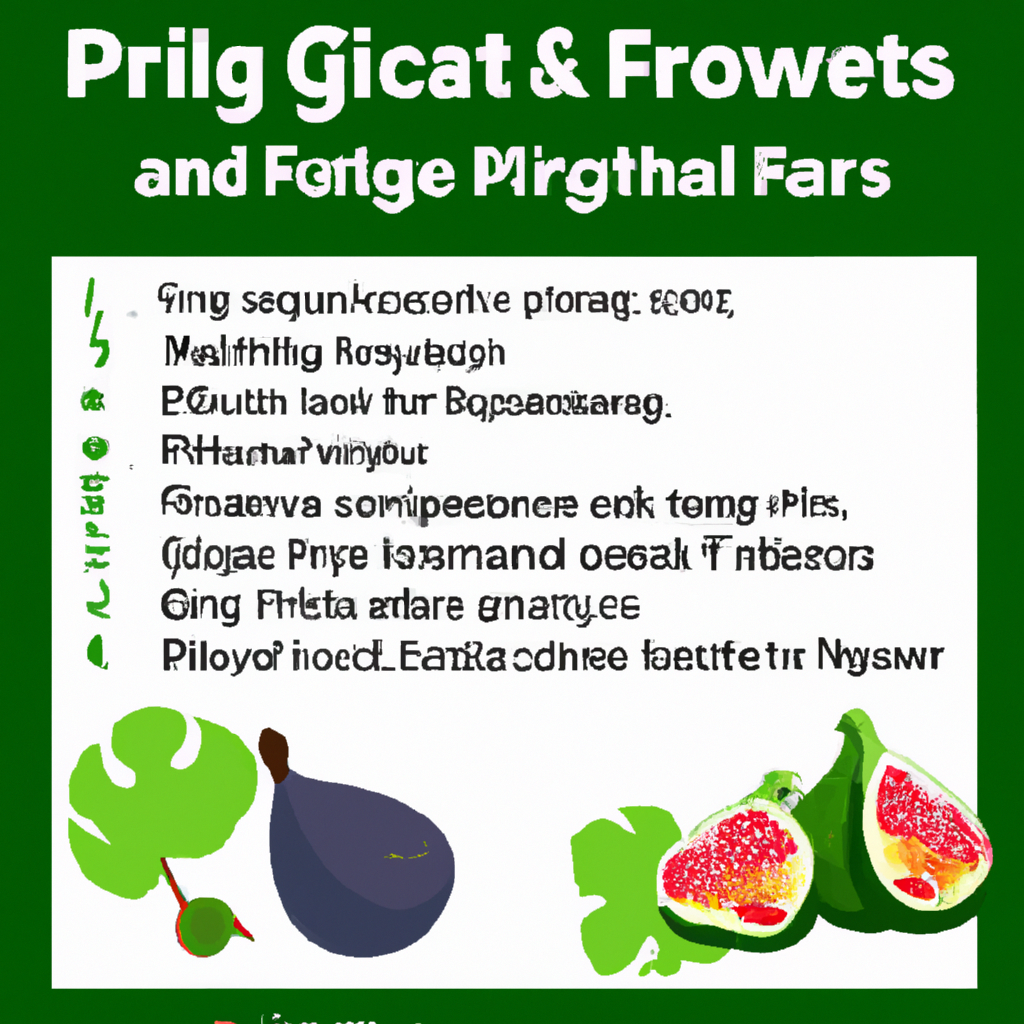Parrots are fascinating and intelligent creatures, often admired for their vibrant plumage and charming personalities. As a pet owner, you may find yourself wondering about the dietary needs of your feathered companion. One question that frequently arises is whether parrots can safely consume figs. In this article, we will explore the nutritional value of figs, examine their potential benefits and risks for parrots, and provide some useful guidelines for incorporating this delectable fruit into your parrot’s diet.
Health Benefits of Figs for Parrots
Figs are not only a delicious and sweet treat but also provide several health benefits for your feathered friend, the parrot. These benefits include their nutritional value, rich source of vitamins and minerals, antioxidant properties, and their ability to promote digestive health. However, it is essential to be aware of the potential risks associated with feeding figs to parrots and take proper precautions. In this article, we will explore the various health benefits of figs for parrots, the potential risks, how to properly prepare figs for your parrot, and alternative options to provide a balanced diet.
Nutritional Value of Figs
Figs offer a variety of essential nutrients that can contribute to your parrot’s overall well-being. They are loaded with fiber, which aids in digestion and can prevent constipation. Figs also contain high levels of potassium, which supports heart health and proper muscle function. Additionally, they provide a good amount of calcium, iron, and magnesium, all crucial for maintaining healthy bones and feathers in parrots.
Rich Source of Vitamins and Minerals
Apart from their nutritional value, figs also serve as a rich source of vitamins and minerals. They are a significant source of vitamin C, which can boost the immune system and help prevent illness in parrots. Figs also contain vitamin A, which supports healthy vision, and vitamin K, which helps with blood clotting. Furthermore, they contain minerals like manganese, copper, and zinc, which are necessary for various bodily functions in parrots.
Antioxidant Properties
Figs possess antioxidant properties due to their high levels of phenolic compounds and flavonoids. These antioxidants help neutralize harmful free radicals in your parrot’s body, reducing the risk of cellular damage and potentially preventing age-related diseases. By incorporating figs into your parrot’s diet, you can contribute to their overall health and longevity.
Promotes Digestive Health
Figs are known to promote healthy digestion in parrots. Their fiber content aids in regulating bowel movements and preventing constipation. The presence of natural enzymes in figs can also assist in breaking down food and improving nutrient absorption. Including figs in your parrot’s diet can support their digestive system and prevent gastrointestinal discomfort.

This image is property of images.unsplash.com.
Potential Risks of Feeding Figs to Parrots
While figs offer numerous health benefits, it is crucial to be aware of the potential risks associated with feeding them to parrots. These risks include the high sugar content and the possibility of allergic reactions.
High Sugar Content
Figs are naturally sweet and have a high sugar content. While sugar is a source of energy, too much can lead to weight gain, obesity, and potential health problems in parrots. It is important to ensure that figs are given to parrots in moderation and as part of a balanced diet to prevent excessive sugar intake.
Possible Allergic Reactions
Some parrots may have allergies or sensitivities to certain foods, including figs. It is essential to monitor your parrot closely after introducing figs into their diet. Look for any signs of allergic reactions such as swelling, itching, or changes in behavior. If you notice any adverse reactions, it is best to consult a veterinarian promptly.
This image is property of images.unsplash.com.
Preparing Figs for Parrots
Before offering figs to your parrot, it is important to properly prepare them to ensure your parrot’s safety and enjoyment. This involves selecting fresh figs, cleaning and washing them thoroughly, and removing the stem and skin.
Selecting Fresh Figs
When selecting figs for your parrot, opt for ripe fruits that are plump and soft to the touch. Avoid selecting figs that are overly ripe, as they may be rotten or moldy. It is also essential to check for any signs of insect infestation and avoid those figs.
Cleaning and Washing Figs
After selecting the ripe figs, it is crucial to clean and wash them properly to remove any dirt, pesticides, or chemicals. Rinse the figs under lukewarm water and gently scrub them with a soft brush. Ensure that all visible impurities are removed to provide a clean and safe food source for your parrot.
Removing the Stem and Skin
Before feeding figs to your parrot, it is important to remove the stem and skin. The stem can present a choking hazard, while the skin may be too tough for your parrot to digest properly. Carefully cut off the stem, and peel the skin if necessary, ensuring that only the ripe flesh remains before offering the figs to your parrot.
Feeding Figs to Parrots
Now that you have prepared the figs, it is essential to introduce them to your parrot’s diet in a controlled manner and monitor their response. Additionally, offering a variety of foods alongside figs can help provide a well-rounded and balanced diet for your feathered friend.
Introduce Figs in Moderation
When introducing figs to your parrot, it is important to start with small portions. This allows your parrot’s digestive system to adjust to this new food item. Gradually increase the amount of figs over time, while ensuring that the overall diet remains balanced and diverse.
Monitor Parrot’s Response
After introducing figs into your parrot’s diet, closely observe their response. Look for any signs of digestive issues, allergic reactions, or changes in behavior. If your parrot experiences any adverse effects, consult a veterinarian to address the issue promptly. Every parrot is unique, and their tolerance to certain foods may vary, so it is important to pay attention to their individual needs.
Offer a Variety of Foods
While figs can be a healthy addition to your parrot’s diet, it is crucial to provide a variety of other fruits, vegetables, and nutritious foods. This ensures that your parrot receives a well-balanced diet that meets all of their nutritional requirements. Consult a veterinarian or avian specialist for guidance on the specific dietary needs of your parrot.

Alternatives to Figs for Parrots
If your parrot is unable to tolerate figs or you simply want to provide some variety in their diet, there are alternative fruits and vegetables you can offer to ensure a balanced diet.
Other Safe Fruits
Some great fruit options for parrots include apples, bananas, blueberries, grapes, and melons. These fruits provide a range of vitamins, minerals, and antioxidants that can benefit your parrot’s health. Always ensure that any fruits offered to your parrot are thoroughly washed and prepared before serving.
Vegetables for Balanced Diet
Vegetables are an excellent addition to a parrot’s diet as they provide essential vitamins, minerals, and fiber. Consider offering vegetables such as carrots, broccoli, peas, bell peppers, and leafy greens like kale or spinach. Remember to introduce new vegetables gradually and monitor your parrot’s response.

Conclusion
Figs can be a nutritious and enjoyable addition to your parrot’s diet, offering a range of health benefits such as their nutritional value, rich source of vitamins and minerals, antioxidant properties, and promotion of digestive health. However, it is essential to be cautious and aware of the potential risks, including the high sugar content and possible allergic reactions. By properly preparing figs, introducing them in moderation, and monitoring your parrot’s response, you can safely incorporate this fruit into their diet. Additionally, offering a variety of other fruits and vegetables ensures a well-rounded and balanced diet for your feathered friend. Remember to consult with a veterinarian or avian specialist for personalized advice on your parrot’s dietary needs. With proper care and attention, figs can be a healthy and enjoyable treat for your parrot.

